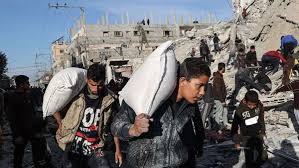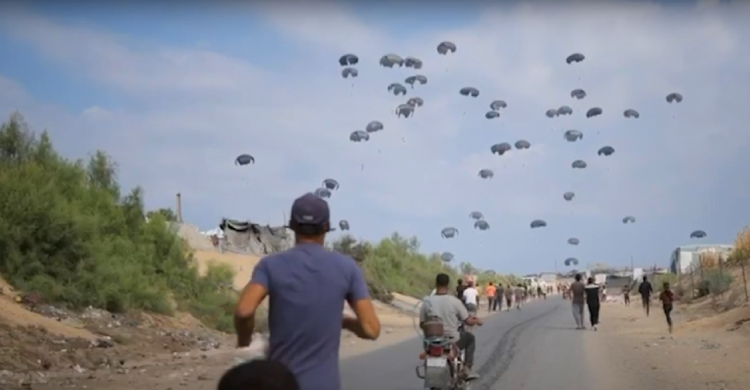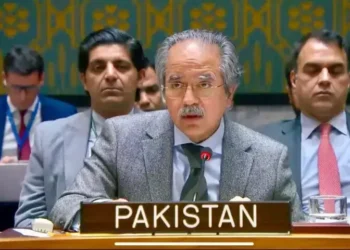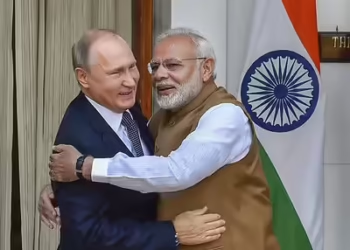MNN (Web-Desk); Last week in central Gaza’s az-Zawayda neighbourhood, a shipment of aid parachuted from the sky. But no one dared to run toward it. “We knew,” one local said, “that the moment it touched the ground, gunfire would erupt.” The hunger-stricken residents didn’t just fear starvation—they feared the battle that would follow. In Gaza today, food can be more dangerous than bombs, an AlJazeera report states.

Aid drops, once considered lifelines, have turned into flashpoints of violence. Armed gangs, pre-positioned at expected drop sites, seize the supplies by force. The poor and displaced never stand a chance. Instead, stolen aid ends up in the black market. A single biscuit from an aid box recently sold for 20 shekels (about $5)—a price far beyond what most families can afford.
More tragically, the very aid meant to save lives has cost them. On Monday, a pallet fell onto a tent sheltering displaced families and killed Uday al-Quraan, a medic at Al-Aqsa Martyrs Hospital. Last week, 11 others were injured when another drop struck tents in northern Gaza. In previous incidents, aid pallets with failed parachutes killed five in Gaza City’s Shati refugee camp. Twelve drowned chasing boxes that fell into the sea, and six were trampled in a chaotic stampede.
The recent wave of airdrops began following a call from Israeli Prime Minister Benjamin Netanyahu, appealing to world governments for help. Nations like Jordan, the UAE, and some European states responded, sending aid by air. But critics point out that this spectacle is more about optics than impact. While the world sees images of parachutes gently descending, on the ground, Palestinians see chaos, injury, and death.
“What’s needed,” say many in Gaza, “is not parachutes, but permission.” United Nations agencies—long trusted to manage aid—remain sidelined, and land crossings into Gaza stay tightly shut. Thousands of trucks, loaded with sufficient food to alleviate starvation, wait idle on Egypt’s side of the border.
Yet the airdrops continue—an inefficient, dangerous, and expensive measure that fails to reach those in need. The UN has repeatedly warned against using this method, noting that trucks can carry four to ten times more aid, more safely and at lower cost. But instead of real relief, Gaza gets a handful of falling boxes and global applause.
This “humanity with parachutes,” as many in Gaza now call it, is viewed not as mercy, but as a cover-up—a distraction from the deeper injustice. Gaza is not just under siege from bombs, but from narratives, hypocrisy, and inaction. Every aid drop is a photo opportunity that allows the world to claim it cares—while the siege and starvation grind on.
As more than 180 Palestinians—half of them children—have already died from hunger, the silence of global powers grows louder. In the end, say Gazans, history will record not just the victims of starvation, but the complicity of those who chose silence over justice.
Source; AlJAZEERA



































































